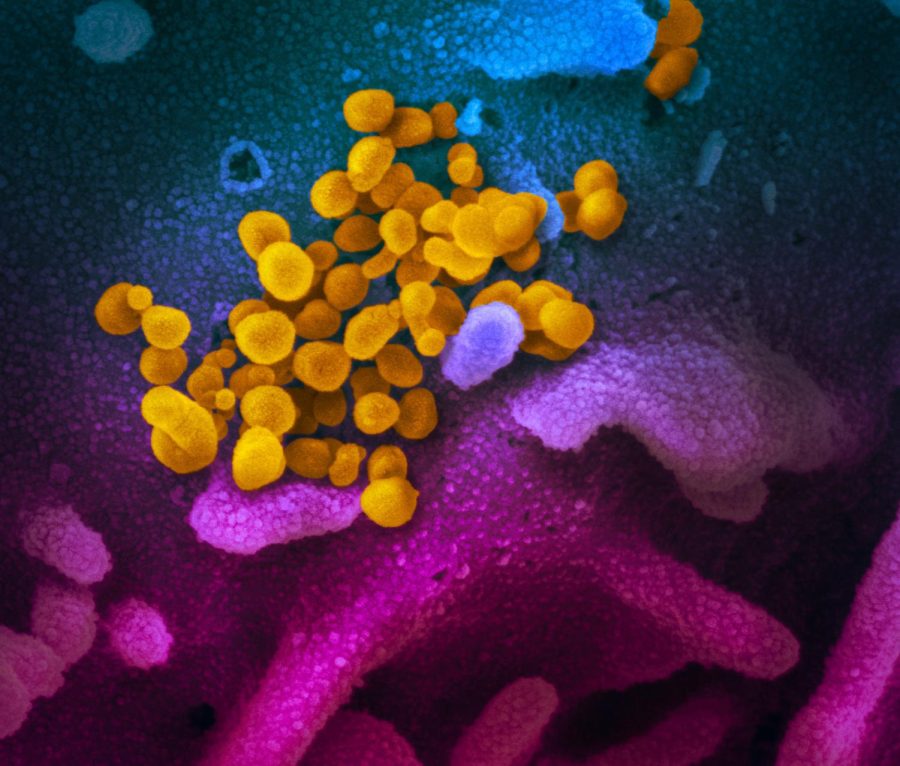Staying safe, protecting yourself from coronavirus
March 1, 2020
With the first recorded U.S. death from the coronavirus, also known as COVID-19, many people are wondering what symptoms to watch for and how to protect themselves.
According to the World Health Organization (WHO), the common signs of coronavirus are similar to the upper respiratory symptoms of a common cold. These can include a fever, cough, shortness of breath, a runny nose, sore throat and headache. For those with a weakened immune system, the elderly and the very young, there’s a chance the virus could cause a lower, and much more serious, respiratory tract illness like a pneumonia or bronchitis.
Here are some preventative tips you can take to protect yourself from the virus:
-
Wash your hands often. Invest in a small bottle of sanitizer or wash your hands thoroughly with soap and water for at least 20 seconds.
-
Be social, but keep a nice distance. The WHO recommends you stay three feet from anyone who is coughing or sneezing. Transmission of the virus happens when someone comes into contact with an infected person’s secretions, such as droplets in a cough. “If you are too close,” according to the WHO, “you can breathe in the droplets, including the COVID-19 virus if the person coughing has the disease.”
-
Avoid touching your face. Your hands come into contact with many surfaces and touching your face can spread the virus to your mouth, nose and eyes.
Practice good respiratory hygiene. If you cough or sneeze, don’t cover your mouth and nose with your hand. Instead, cough or sneeze into your elbow to avoid spreading droplets that may contain the virus.
AVOIDANCE, IF YOU GET SICK
Most of the time, symptoms will go away on their own and experts advise seeking care early. If your symptoms feel worse than a standard cold, see your doctor. Doctors can relieve symptoms by prescribing a pain or fever medication. The CDC says a room humidifier or a hot shower can help with a sore throat or cough.
People with coronavirus should receive supportive care to help relieve symptoms. In some severe cases, treatment includes care to support vital organ functions, the CDC says.
People who think they may have been exposed to the virus should contact their health care provider immediately.
Quarantine is usually set up for the incubation period, which is the span of time during which people have developed illness after exposure. For coronavirus, the period of quarantine is 14 days from the last date of exposure, because 14 days is the longest incubation period seen for similar illnesses.
There is no vaccine to protect against coronavirus, at least not yet.
The U.S. National Institutes of Health is working on a vaccine but it will be months until clinical trials get underway and more than a year until it might become available.
Meanwhile, you may be able to reduce your risk of infection by avoiding people who are sick. Cover your mouth and nose when you cough or sneeze, and disinfect the objects and surfaces you touch.
Awareness is also key. If you are sick and have reason to believe it may be coronavirus, you should let a health care provider know and seek treatment early.
The-CNN-Wire contributed to this story.














